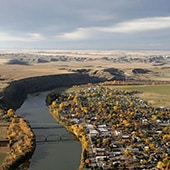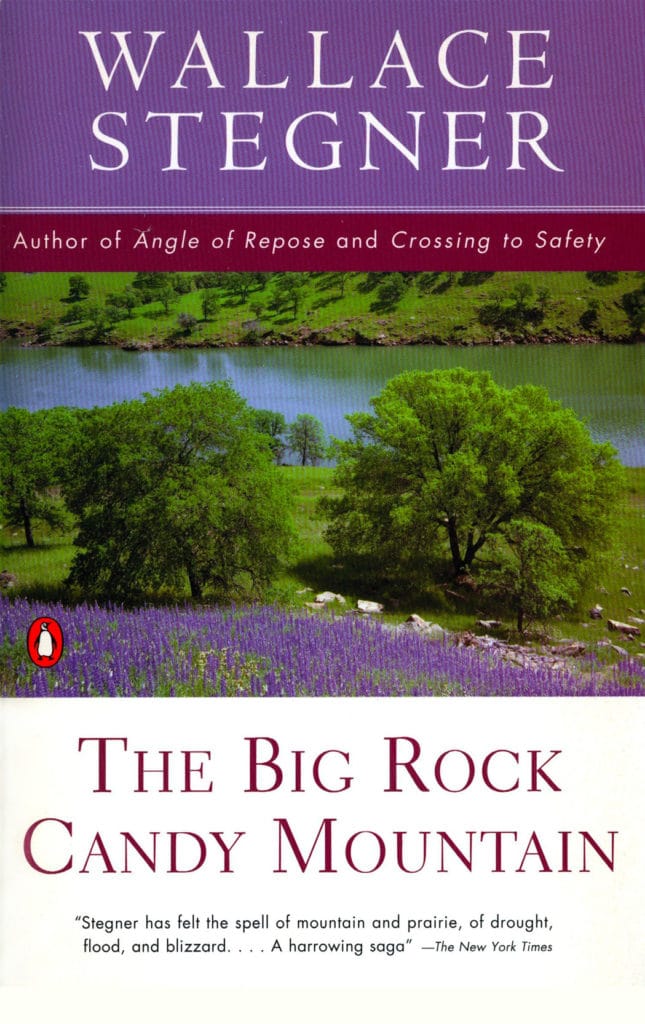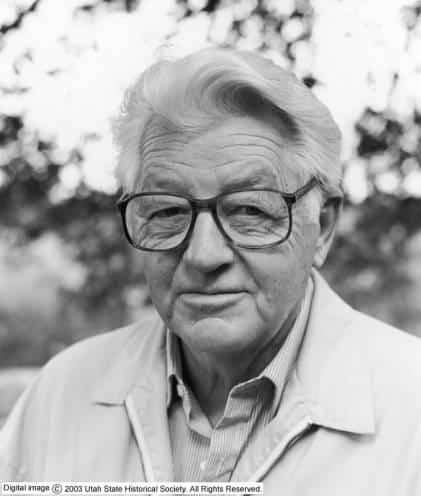The Big Rock Candy Mountain: Fort Benton
Sixteen cases of whiskey, camping equipment, food, and four people were in the car. They sat on dynamite and waved goodbye to the neighbors and pulled out boldly through the town on the road to Fort Benton, and at Fort Benton, back in a dusty alley behind a warehouse, they picked up the loaded trailer carrying fourteen more cases of whiskey, and crossed the Missouri and started south…. Eventually, that night, they wound up in the pass above where Bo had been hijacked in November. (364)
Wallace Stegner. The Big Rock Candy Mountain. New York: Penguin Books, 1991.



